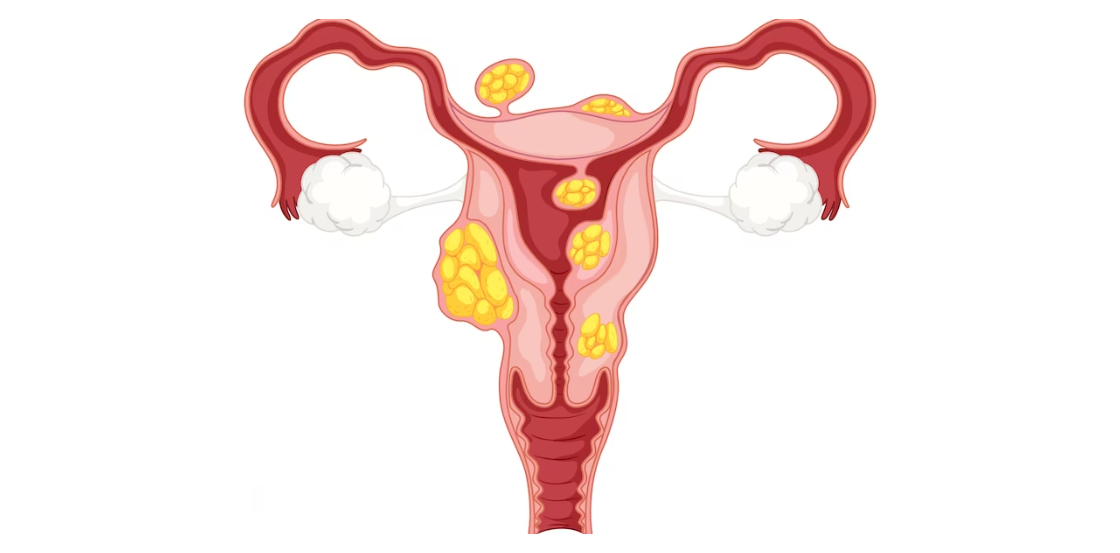Post link copied to clipboard!

Ovarian Cysts treatment options are crucial for managing this common medical condition that affects many women worldwide. These fluid-filled sacs can develop on or within the ovaries and often go unnoticed, causing mild discomfort or more severe symptoms. This condition, though often benign, can cause discomfort and concern for many women.
So it’s vital to understand the various treatment options available to manage symptoms and potentially prevent complications. In this article, I will delve deeper into the various aspects of ovarian cysts and explore the available treatment options.
These fluid-filled sacs can vary in size, with some being as small as a pea. And certain cysts may grow as large as a grapefruit. Most of these cysts are functional, meaning they develop as part of the menstrual cycle and are generally harmless.
Different types of ovarian cysts include:
Functional cysts are common and typically result from the normal menstrual cycle. It forms when:
Dermoid cysts are more unusual, containing a variety of tissues like hair and skin, often requiring surgical removal.
Endometriomas arise from tissue similar to the uterine lining, causing pain and affecting fertility.
Cystadenomas, usually benign, develop on the ovaries’ surface and may necessitate medical intervention based on their size and symptoms.
Ovarian cysts Symptoms can range from pelvic pain and bloating to changes in menstrual patterns. Diagnosis typically involves a combination of pelvic exams, ultrasounds, and in some cases, MRI scans.
Conservative management involves non-invasive or minimally invasive methods to monitor and address these sacs without surgical intervention. Here are some conservative approaches that healthcare providers might consider:
Doctors may recommend a watchful waiting approach (in many cases), especially if the cyst is small and asymptomatic. It involves regular monitoring to ensure the cyst doesn’t grow or cause additional issues.
For women experiencing discomfort, over-the-counter pain relievers can provide relief. However, these medications only address the symptoms and do not treat the underlying cyst.
Specific hormonal birth control methods, such as birth control pills, can help regulate the menstrual cycle and prevent the formation of new cysts.
In some cases, surgical intervention may be necessary. Surgical procedures for ovarian cysts include:
Doctors may recommend a laparoscopy if cysts are large, causing severe pain, or appear suspicious. This minimally invasive procedure allows a surgeon to remove or biopsy the cyst.
A cystectomy may be necessary where cysts are persistent, significant, or causing discomfort. This surgical procedure involves removing the cyst while leaving the ovaries intact.
In more adverse cases, an oophorectomy, which is the removal of one or both ovaries, may be recommended to prevent the recurrence of cysts, especially if they are cancerous.
Note that these remedies are not a substitute for medical advice and consultation with a healthcare professional. If you suspect you have ovarian cysts or experience severe symptoms, seek medical guidance.
Maintaining a balanced diet rich in fruits, vegetables, and whole grains can contribute to overall reproductive health and potentially reduce the risk of cyst formation.
Certain herbal supplements, such as chaste berry and turmeric, have been studied for their potential to support ovarian health, though more research is needed.
Applying heat to the pelvic area can help alleviate pain and discomfort associated with ovarian cysts.
While lifestyle changes alone may not completely eliminate ovarian cysts, they can manage symptoms, promoting overall health and potentially reducing the risk of cyst recurrence. It’s important to note that medical advice should always be sought and followed in conjunction with any lifestyle modifications.
Chronic stress can exacerbate hormonal imbalances and potentially contribute to ovarian cyst formation. Practising stress-reduction techniques such as meditation and yoga may be beneficial.
Regular physical activity can help regulate hormones and promote overall well-being, potentially reducing the risk of ovarian cysts.
Quality sleep is essential for hormonal balance and overall health. Establishing a regular sleep schedule and creating a relaxing bedtime routine can be helpful.
Medical advancements continue to shape the landscape of ovarian cyst treatment, and several exciting prospects are on the horizon. Here are some potential future directions:
As medical technology evolves, new diagnostic tools and treatment methods for ovarian cysts may emerge, offering more precise and effective options.
Researchers are actively investigating potential breakthroughs in ovarian cyst treatment, including targeted therapies that could shrink or eliminate cysts without surgical intervention.
Ovarian cysts are a common concern for women, but with advancements in medical knowledge and treatment options, managing and treating these cysts has become more effective. From conservative approaches to medical interventions and lifestyle adjustments, women have a range of choices to address ovarian cysts and their symptoms.
Not all ovarian cysts are cancerous. Most cysts are benign and pose no significant health risk.
Yes. Many women with this issue can still conceive and have a healthy pregnancy.
If you experience persistent pelvic pain, bloating, or changes in menstrual patterns, it’s advisable to consult a doctor for proper evaluation and diagnosis.
Surgery is not always necessary. Small, asymptomatic cysts may require regular monitoring.
Maintaining a healthy lifestyle, managing stress, and practising good sleep hygiene can help reduce the risk of this condition.